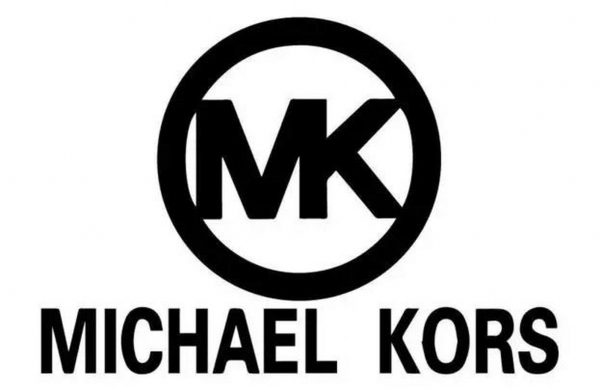Did not receive verification mail? Please confirm whether the mailbox is correct or not Re send mail

IPR Daily
- 2023-12-15 12:17:08
Nokia to Appeal Chinese Global FRAND Determination in Oppo Dispute
4G Mainland China and other price-sensitive (presumably low margin) territories - $0.477/unit
4G territories with higher average sale prices – $0.777/unit
5G Mainland China and other price-sensitive territories – $0.707/unit
5G territories with higher average sales price – $1.151/unit
Nokia will appeal against the No. 1 Intermediate People’s Court of Chongqing Municipality’s FRAND determination in the global 5G patent licensing dispute with Oppo, the details of which emerged today and which are strongly in favour of the Chinese handset maker.
The ruling contains the following four key numbers:
While the judgment confirms Oppo’s obligation to pay for the use of Nokia’s patents, the numbers are notably lower than those published on the Finnish company's website – $3.27/unit for 5G patent licensing.
The court has also set a discount for China and lower GDP countries, meaning the rates are significantly lower in markets where Chinese handset makers might typically have a larger share – proving hugely advantageous to the Chinese industry. Oppo, for example, claims huge shares of markets such as Cambodia (21.63%), Indonesia (20.45%) and Laos (18.93%), while its share in Europe is reported to be just over 2%.
Further, the use of a top-down methodology, which treats every single patent – even non-granted applications – as equal, means the court has not analysed the concept of patent quality and is largely favouring Oppo, which has had an increase in its patent applications in the last three years.
The Chinese handset maker noted in a statement published earlier this month how it is a “key holder” of 5G SEPs, completing a total of over 5,700 global patent applications and ranking among the top globally in 5G SEP strength, according to Iplytics.
But, as companies such as Ericsson have previously noted, the strength of a patent portfolio is more than just a numbers game. In fact, Oppo is still yet to test many of its 5G patents in court. It recently asserted eight of its SEPs against Nokia in Germany, but that counteroffensive strategy is largely failing. The European Patent Office partially upheld one of those patents but has fully revoked four, while one was found by a court not to be infringed and two are preliminarily considered by the EPO as not valid.
In contrast to courts in India, the UK, and Germany, which have all concluded that Oppo is an unwilling licensee, the Chinese judgment does not find fault with Oppo’s conduct during negotiations.
News about the judgment initially emerged on 4 December, when Nokia told IAM that the issuance of the Chongqing judgment shows Oppo “has an obligation to pay Nokia” and that the Chinese implementer needs to make payments for the whole unlicensed period. “We hope that Oppo now comes to the negotiation table and accepts its obligations to pay fair compensation for the use of Nokia's innovations,” it said.
The Finnish company added: “All along our aim has been to resolve the dispute fairly and we remain focused on that goal. While we cannot comment on the Chongqing court’s judgement in detail at this time, we note that its impact is limited to the Chinese jurisdiction only and as such represents only one view. Courts outside of China have confirmed that Oppo is in breach of its commitments as a user of Nokia’s technology in open standards. Courts outside of China have also confirmed that Nokia has made fair offers to Oppo whereas Oppo has not made fair offers and is engaged in delaying tactics.”
In its own statement, Oppo said it welcomed the decision and hoped Nokia would do the same.
The company was hopeful that this ruling would “actively resolve” its patent licensing fee dispute with Nokia, it said at the time. But, today’s news that Nokia will be challenging the judgment means this fight is still far from over. The Chongqing decision cannot be enforced while the appeal is pending.
The decision to appeal also gives time to other jurisdictions, such as India, to issue a decision. The two companies were scheduled to give Justice Prathiba Singh, of the Delhi High Court, a decision about whether it should be her court that determines a global FRAND rate at the end of November. The judge opened up the possibility for the Indian court to issue such a decision in October. Nokia quickly agreed to this, but Oppo has not yet publicly announced its stance – likely as it was waiting for the Chongqing court’s judgment to come out.
Source: iam-media.com - Olivia Rafferty
Editor: IPR Daily-Horace
- I also said the two sentence
- Also you can enter 140words
 From Procedure to Substance: A Case Chronicle of Victory in the SHIEN.COM Domain Name Case
From Procedure to Substance: A Case Chronicle of Victory in the SHIEN.COM Domain Name Case Strategic Breakthroughs and Legal Victories: Tracy Shen’s Trademark Defense and Classic Case Insights .
Strategic Breakthroughs and Legal Victories: Tracy Shen’s Trademark Defense and Classic Case Insights . Amid Shake-Ups, USPTO Gets New Acting Deputy Director
Amid Shake-Ups, USPTO Gets New Acting Deputy Director Preventing Infringement at Its Source:The MICHAEL KORS Case Study
Preventing Infringement at Its Source:The MICHAEL KORS Case Study


